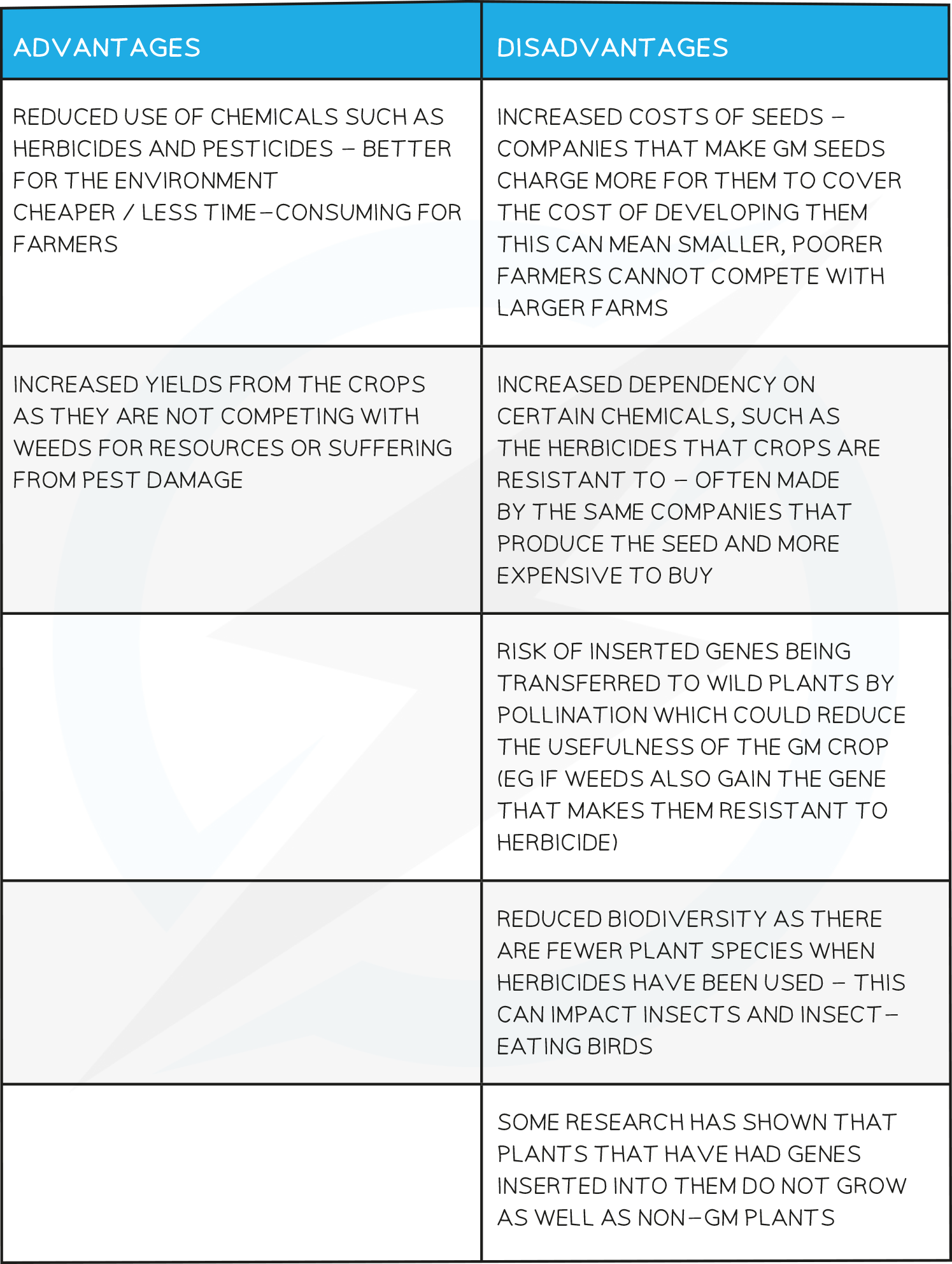- 翰林提供学术活动、国际课程、科研项目一站式留学背景提升服务!
- 400 888 0080
Edexcel IGCSE Biology 复习笔记 5.3.3 Genetic Engineering: Crops
Edexcel IGCSE Biology 复习笔记 5.3.3 Genetic Engineering: Crops
Genetic Engineering: Crops
- Genetically modified plants are plants that have had foreign DNA inserted into their genome
- This is usually done to improve food production in some way
- Crops can be genetically modified (they are known as GM crops)
- Crop plants, such as wheat and maize, have been genetically modified to contain a gene from a bacterium that produces a poison that kills insects, making them resistant to insect pests such as caterpillars. This can improve crop yields
- Crop plants have also been genetically modified to make them resistant to certain herbicides (chemicals that kill plants), meaning that when the herbicide is sprayed on the crop it only kills weeds and does not affect the crop plant
- Some crops have been genetically modified to produce additional vitamins and improved nutritional value, eg. ‘golden rice’ contains genes from another plant and a bacterium which make the rice grains produce a chemical that is turned into vitamin A in the human body, which could help prevent deficiency diseases in certain areas of the world
- Some have been genetically modified to be drought-resistant (to grow better in very dry conditions). This can also improve crop yields
- Concerns about GM crops include the effect on populations of wildflowers and insects
- Some people feel the effects of eating GM crops on human health have not been fully explored
Advantages & Disadvantages of GM Crops Table

转载自savemyexam

最新发布
© 2026. All Rights Reserved. 沪ICP备2023009024号-1









